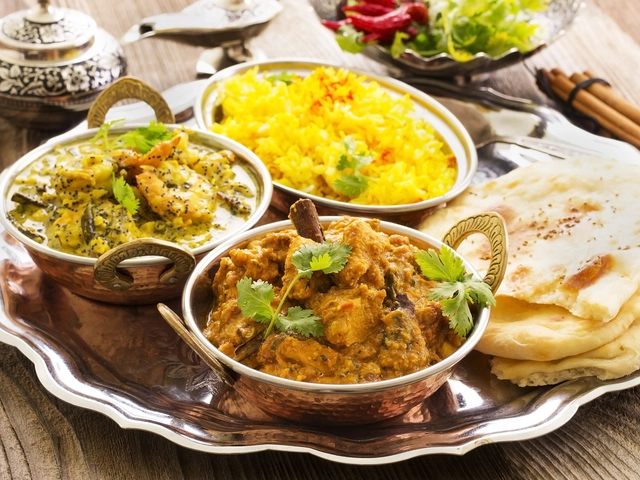What crimes do home cooks commit in the kitchen?
- by Atticus Montgomery
- May, 10 2023

Confessions of a Home Cook: Kitchen Crimes Exposed!
As a home cook, I'm no stranger to the occasional kitchen fiasco. I've burned my fair share of dishes, added too much salt, and even turned a beautiful cake into a crumbly mess. But, it's time to confess and address some of the most common crimes committed by home cooks in the kitchen. In this article, I'll be exposing eight offenses that even the most experienced cooks may be guilty of. So, grab your apron and let's dive in!
1. Cross-contamination Culprits
One of the biggest crimes committed in the kitchen is cross-contamination. Using the same cutting board or knife for raw meats and fresh produce can lead to the spread of harmful bacteria, like E. coli or salmonella.
To prevent this, always use separate cutting boards and knives for meat and produce. Don't forget to wash your hands thoroughly with soap and water after handling raw meat. Additionally, sanitize cutting boards and utensils with hot, soapy water or a bleach solution.
2. The Great Dish Towel Debacle
It's time to talk about dish towels, those seemingly innocuous kitchen essentials that can harbor a multitude of sins. Using the same towel to dry your hands, wipe countertops, or even handle hot pots and pans can spread germs and bacteria.
To keep your kitchen safe and sanitary, designate separate towels for different tasks. For example, use one towel for drying hands, another for wiping countertops, and a third for handling hot dishes. Be sure to wash dish towels regularly in hot water to kill any lingering germs.
3. Ignoring Expiration Dates
When was the last time you checked the expiration dates in your pantry or refrigerator? Using expired ingredients can lead to foodborne illnesses or, at the very least, a less-than-tasty dish.
To avoid this kitchen crime, regularly check the expiration dates of your ingredients and toss anything that's past its prime. Keep a close eye on perishable items like dairy products, eggs, and meats, which can spoil quickly if not stored properly.
4. Measuring Mishaps
While some culinary creations can be made with a dash of this and a pinch of that, precise measuring is essential for many recipes. Skipping this step or using inaccurate tools can lead to disappointing results.
Invest in a set of measuring spoons and cups, and use them consistently when following a recipe. Don't forget to level off dry ingredients like flour and sugar for the most accurate measurements. For liquid ingredients, use a clear measuring cup with easy-to-read markings.
5. Overcrowding the Pan
When it comes to cooking, patience is a virtue. Overcrowding the pan can lead to unevenly cooked food and a lack of that perfect golden-brown crust we all crave.
Resist the urge to cram everything into one pan, and instead cook in batches or use multiple pans if necessary. Giving your ingredients room to breathe will result in better browning and more evenly cooked dishes.
6. The Great Stirring Debate
Stirring is a contentious topic in the kitchen. Some dishes require constant attention, while others benefit from being left undisturbed. Knowing when to stir and when to let things be can be the difference between a perfect dish and a kitchen disaster.
Follow the recipe's instructions when it comes to stirring. If a dish needs frequent stirring, like risotto or a delicate sauce, be sure to stay close by and give it the attention it deserves. For dishes that need time to develop a crust, like a perfectly seared steak or roasted vegetables, resist the urge to stir and let the magic happen.
7. Skimping on Seasonings
Seasoning is an essential part of creating flavorful and delicious dishes. However, many home cooks are guilty of under-seasoning their creations out of fear of adding too much.
To avoid bland, tasteless dishes, be sure to taste your food as you cook and adjust the seasonings as needed. Remember that you can always add more, but you can't take it away, so start with a little and build up to the perfect flavor balance.
8. Rushing the Rest
Last but not least, one of the most overlooked kitchen crimes is failing to rest meat after cooking. Resting allows the juices to redistribute and settle, resulting in a more tender and flavorful dish.
After removing your meat from the heat, tent it with aluminum foil and let it rest for at least five minutes before slicing or serving. Trust me - your taste buds will thank you!
In conclusion, we're all guilty of committing a kitchen crime or two, but recognizing and correcting these common mistakes can help us become better, more confident cooks. So, let's learn from our culinary missteps and create delicious, safe, and satisfying meals for ourselves and our loved ones.





Write a comment